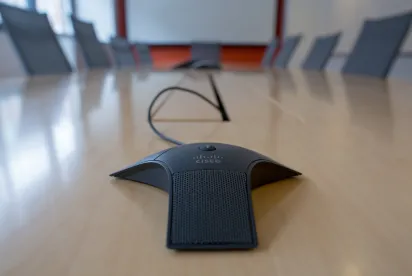Like most aspects of litigation, mediation is a very personal pursuit. So much depends on the credibility and communication skills of the participants. Equally important are the participants’ non-verbal cues, including tone of voice, facial expressions, and body language. And a key to success of many mediations is the ability of the mediator to develop a rapport and trust with all of the players. Just as online poker cannot truly replicate the in-person card game, so virtual mediation is not a perfect substitute for a mediation that takes place around an actual table.
Despite its deficiencies, virtual mediation has some advantages. If some participants are not located where the mediation is taking place, it can save them the time and cost of travel. It also may provide some greater flexibility in how the mediation is structured. And, of course, in times like these, there may simply be no alternative than to mediate online. But parties who do not have to go to the trouble and expense of travel, and configurations that do no leave people stuck in their break-out rooms, can also lessen the parties’ commitments to full engagement in the mediation process and getting a deal done.
Class actions may be less susceptible to the shortcomings of virtual mediations than other types of disputes. By the time many class actions reach the mediation stage, the lawyers for both sides will have gotten to know each other and formed whatever relationship they are going to form through court appearances and discovery. Also, class action mediation sessions typically are attended only by lawyers or business representatives who, if they are doing their jobs well, are not as driven by emotion as individual parties tend to be. Still, the personal touch can be important even in a class action mediation, especially in the interactions between the mediator and the representatives of each side.
Mediators can attempt to overcome, or at least mitigate, deficiencies in the quality of personal interactions by increasing their quantity. They can, for example, place more emphasis on pre-mediation videoconferences with each side of a dispute, as well as post-mediation videoconferences for cases that do not settle on the day of mediation. The more the mediator is able to connect both visually and audibly with plaintiff and defense counsel, the more likely they are to develop the rapport and trust that can mean the difference between success and failure.
Although not precisely on point, this article about “Increasing Social Connection While ‘Social Distancing,” by Alicea Lieberman and Juliana Schroeder, is worth reading. It discusses some of the same qualities of online interaction that I mention here, but from more of a personal wellness perspective. I found it interesting and hope you will too.


 />i
/>i
